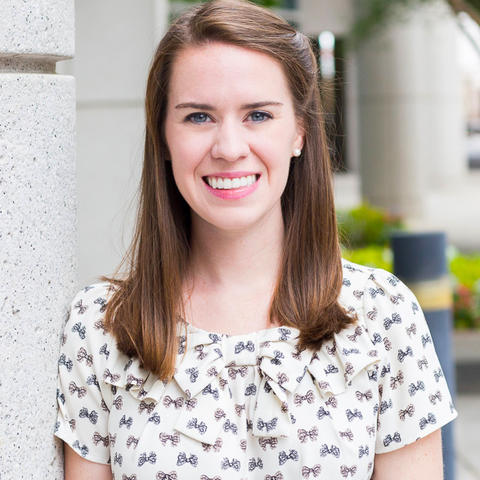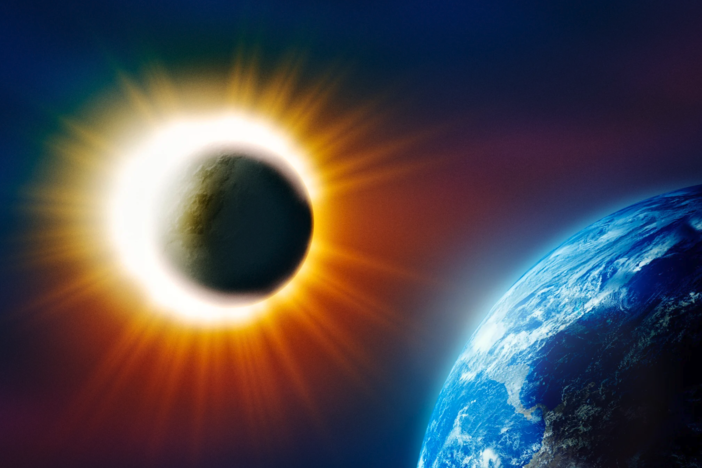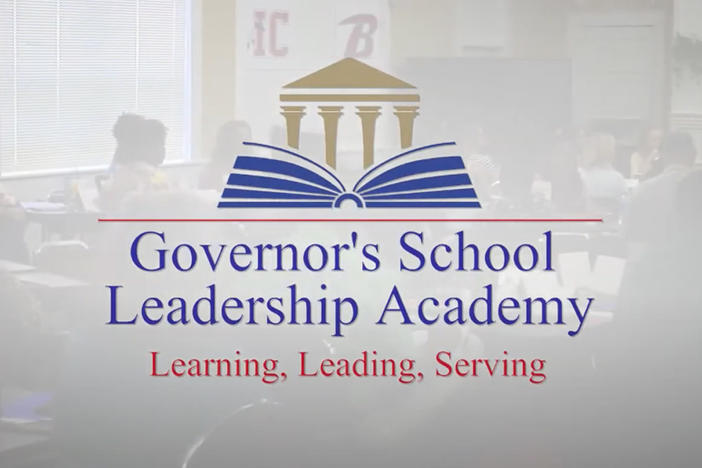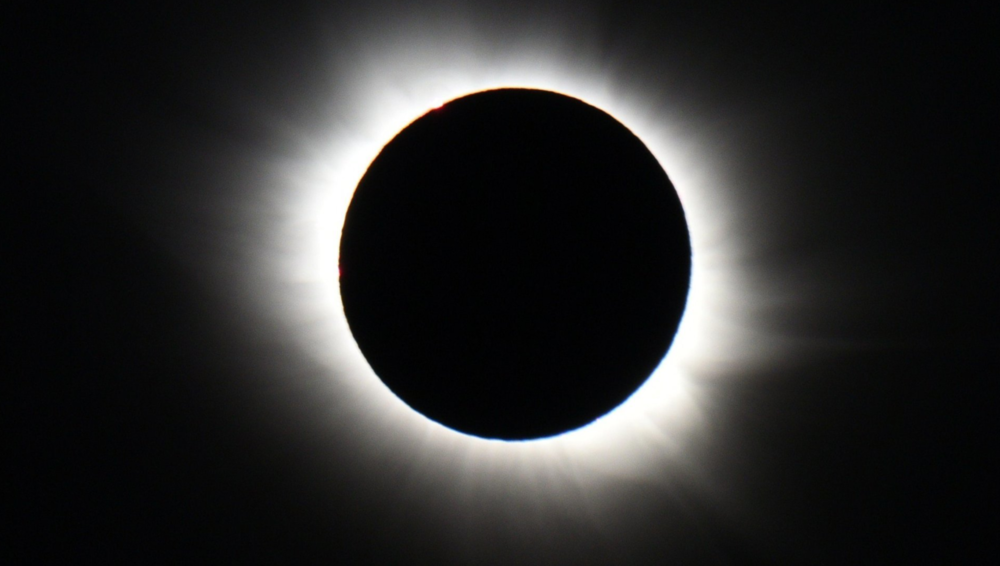
Section Branding
Header Content
The Great American Eclipse Teacher Toolkit
Primary Content

For a few short minutes on August 21, 2017, day will turn to night, a phenomenon that has the whole country freaking out. And rightfully so, too. This is the first time in 99 years that a solar eclipse's path of totality will cut across the entire continental United States, meaning everyone in the country will be able to experience at least a partial solar eclipse. With the tail end of the path passing through Georgia's northeast corner, all areas of the state will witness at least 90% of the sun's light blocked by the moon. (Use this Vox interactive to see what percent of the sun will be blocked in your zip code.) So don't let your students miss this unique event! Explore the resources below to discover ways you can spark excitement in the classroom and ensure a safe viewing experience.
In this episode of Things Explained, learn what causes a solar eclipse, how to safely observe it, and what makes this year's event so special for those in Georgia. Click here to watch the video on PBS LearningMedia.
Classroom Resources
Eclipses | Crash Course Astronomy
Grades: 9-12
In this episode, Phil breaks down what happens during a solar and lunar eclipse and provides tips for safely viewing a solar eclipse. Learn how the Ancient Greeks calculated a close estimation of the earth and moon's actual size two thousand years before the invention of the telescope.
NASA Planetary Sciences Collection
Grades: 6-12
In these videos and interactives from NASA, catalogued and adapted by WGBH, explore the exciting discoveries from NASA missions about the planets, moons, and other objects in our solar system. You'll also find three professional development videos from WNET showing planetary science in action in a high school classroom.
Show Pictures: What Is a Solar Eclipse? | PBS Kids
Grades: K-5
A solar eclipse is a rare and spectacular event to witness! Using this PBS Kids Plum Landing art activity, kids can illustrate what they think the sky will look like during a solar eclipse.
A Pretend Outer Space Adventure | Daniel Tiger's Neighborhood
Grades: PreK-1
With a cardboard box, Daniel imagines that he is an astronaut on an adventure through space. Remind kids to use their imaginations to create pretend worlds. Ordinary objects can be turned into anything!
Grades: 6-12
In this Discovery Education video, pilots Frank Brodtman and Matthias Winkelmann take a detour over Greenland to witness a solar eclipse in an airplane.
The Universe: Ancient Eclipses
Grades: 6-12
Eclipses have not always been viewed in awe. Show students how ancient societies reacted to these astronomical events with this History clip.
What's the Difference Between a Solar and Lunar Eclipse? | Physics Girl
Grades: 6-12
What is the difference between a solar and lunar eclipse? How can you tell the difference? Find out how in this episode of Physics Girl.
Grades: K-12
To empower educators to take full advantage of this rare occasion, Discovery Education is providing a variety of resources that will serve as catalysts for the inquiry process and ignite students' natural sense of curiosity and wonder.
Grades: 3-12
Get fired up for the solar eclipse with this YouTube playlist from NOVA and PBS! Learn about eclipse safety, what causes a solar eclipse, and how this event proves Einstein right.
The Solar Eclipse of 2017: Teacher Toolkit
Grades: K-12
Are you a K-12 teacher looking for ideas and information about what to do with your students, your school, or your community around the upcoming solar eclipse on August 21, 2017? WGBH has gathered information from trusted content partners into this Teacher Toolkit
*GPB is proud to offer all Georgia educators free Discovery Education accounts. If you are a Georgia educator and do not have an account, please email education@gpb.org.
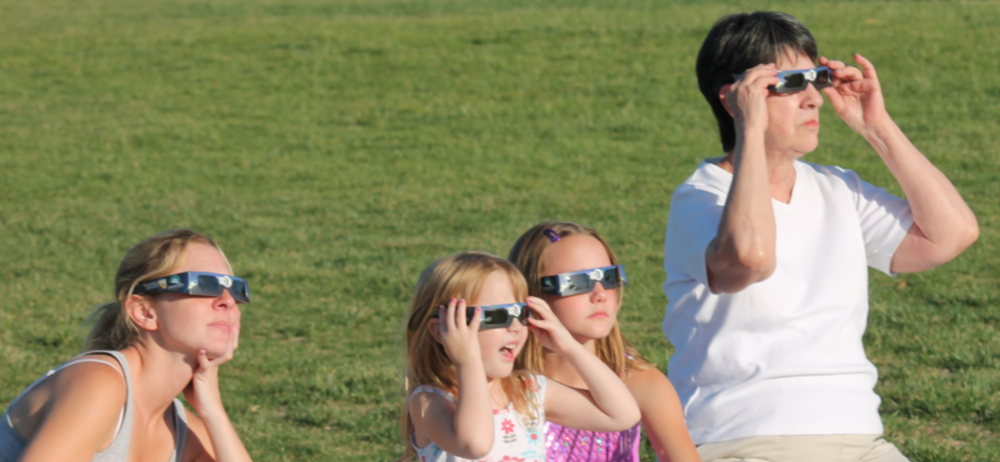
Safety Tips
It's never a good idea to stare directly at the sun. Even looking at a partial solar eclipse without protection can seriously damage your eyesite. Use these resources to ensure your students understand the precautions of witnessing this event.
Don’t ruin this unique phenomenon with a trip to the hospital! In this comprehensive article, NASA experts explain the dangers of staring directly at the eclipse and ways to safely observe it.
How to Safely View the Solar Eclipse
In a series of short videos, Exploratorium physicist, Dr. Paul Doherty, explains the many ways you can safely observe a solar eclipse by using household objects.
Where to Get Free Eclipse Glasses in Atlanta
The AJC has compiled a list of several local Atlanta-area libraries that are distributing free NASA-approved eclipse glasses. If you are from another part of the state or you don't see your library on the list, simply reach out and ask if the location is giving out eclipse glasses.
Where to Get Free Eclipse Glasses in Columbus
News Leader 9 is giving away free solar eclipse glasses at Atlanta Postal Credit Union on Bradley Park Drive in Columbus. Glasses will be given out while supplies last.
Provided by STARnet Libraries, this free, downloadable guide offers eclipse enthusiasts information on how to safely view the upcoming event.
In this video, NPR’s Skunk Bear covers six ways you can easily rig up your own eclipse viewers with simple household items.
Where to Watch
10 Places To Watch The Solar Eclipse In Georgia
Whether or not you’re within the path of totality, Georgia serves as one of the best places to watch the eclipse. Use this WABE article to find ten places in Georgia to watch the event.
Airing on Monday, August 21st on GPB, following the solar eclipse that occurs in Georgia at about 2:30 PM earlier in the day. Join scientists and citizens alike on the same day that they observe the first total solar eclipse to traverse the U.S. mainland in over a generation. Discover the storied history of eclipse science and follow current, cutting edge research into the solar corona.
Watch It Live with Discovery Education (1:17 PM-1:23 PM EST)
Capture every moment of the Great American Eclipse with live coverage on DiscoveryEducation.com. DE’s partners at the Science Channel are broadcasting live from Madras, Oregon — one of the nation’s premier viewing spots — with astronomers and educators, in collaboration with the Lowell Observatory — and Discovery Education will be streaming their footage directly to your classroom. Plus, you can also see live footage from other prime viewing destinations across America — and you’ll even get a glimpse of the eclipse from the International Space Station.
Don’t worry if you can’t make it out during the eclipse because NASA is live streaming the entire event from 100,000 feet in the air. The Megacast will be broadcast to the world on NASA TV, UStream, Facebook, and YouTube and will be picked up by many local and national TV stations.
We want to hear from you!
How are your students learning about and preparing for this month's total solar eclipse? Share it with us by commenting below or sending an email to education@gpb.org for a chance to be featured on our website!
Secondary Content
Bottom Content


